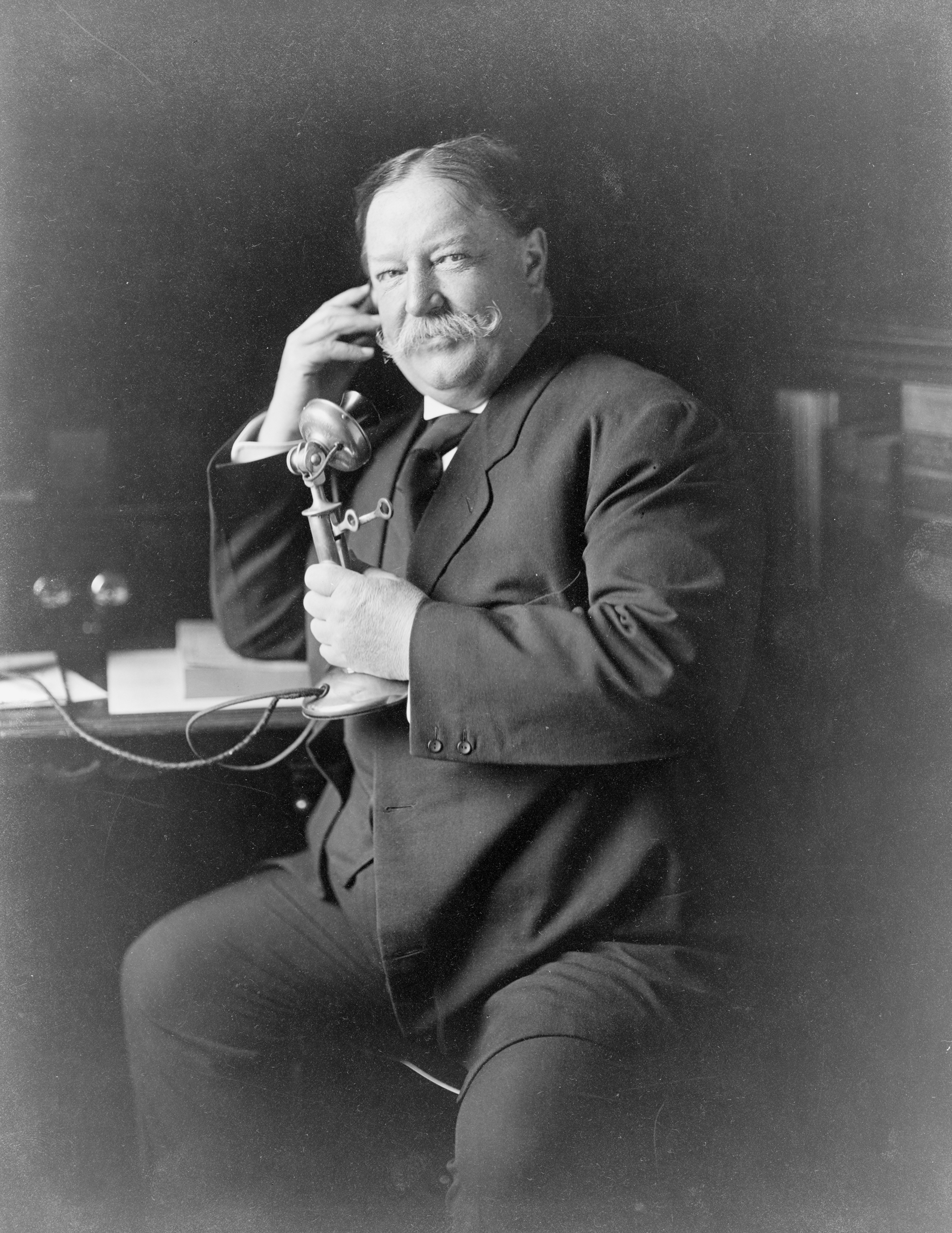
President William Howard Taft at the phone, c. 1908. Library of Congress, Prints and Photographs Division.
• “The use of the phrase a nation of immigrants to describe America first appeared in the late 1890s, in the Congressional Record, according to Donna Gabaccia, a scholar at the University of Toronto. It was used only sparingly until the 1950s, when it was popularized during the movement to broaden the label of white to include a more diverse group of Europeans. Mae Ngai notes that in 1958 John F. Kennedy, himself the descendant of Irish immigrants, published a book called A Nation of Immigrants that included only two paragraphs on Asian and Latino immigration. To call America a nation of immigrants is not wrong, either as a factual statement or an evocation of American myth. But that fact coexists with this one: Over the past century, the United States has deported more immigrants than it has allowed in.” (The Atlantic)
• On Confederate memorials: “There is no ‘both sides’ when one side is genocide. The suggestion that offensive statues should be left in place so that ‘we’ can learn from them and ‘not forget’ this difficult history disregards the fact that people of color neither need nor want to be subjected to propaganda art that underscores our subordinate status.” (Slate)
• Found: Venetian beads from the fifteenth century that likely traveled to Alaska across the Bering Strait. (Sci-News.com)
• Also found: a “lost gold city” in Luxor. (Washington Post)
• In other Egypt news: the country held a huge parade for twenty-two royal mummies. (ArtNet)
• “Americans have long relied on sexual metaphors to figure the country’s relationship with East Asia, a turn of phrase that perhaps titillated the speaker but also cast the imperial presence in Asia as benevolent, pleasurable, and natural.” (Boston Review)
• On a recently beloved genre: “the feminist anachronistic costume drama.” (VQR)
• The courtroom sketches of the Rodney King police brutality trial have been acquired by the Library of Congress. (New York Times)
• Abdelfattah Kilito reads the classics: “Whatever the case may be, anyone who studies a classic Arabic work inevitably reveals their own origin and lineage—we know instantly whether they are Arab, or French, or American, regardless of the language they are using.” (The Baffler)
• “Eight-hundred-year-old medieval pottery fragments reveal Jewish dietary practices.” (Medievalists.net)
• “Archaeologists in France have uncovered a stone with four-thousand-year-old etchings they believe may be the oldest three-dimensional map in Europe.” (The Guardian)
• “Welcome to the original Clubhouse.” (OneZero)
• The history of intentional smallpox infections. (JSTOR Daily)
• “Europe’s oldest known humans mated with Neanderthals surprisingly often.” (Science News)
• This week in obituaries: Lois Sasson, Winfred Rembert, Hans Küng, Lois Kirschenbaum, Joye Hummel, Nemam Ghafouri, Malcolm Cecil, Gianluigi Colalucci, Jane Manning, Martha Lou Gadsden, Howard Weitzman, Isamu Akasaki, Alcee Hastings, Anne Beatts, Arthur Kopit, Kenneth C. Kelly, Lewis Minkin, Constance Demby, and Robert Mundell.